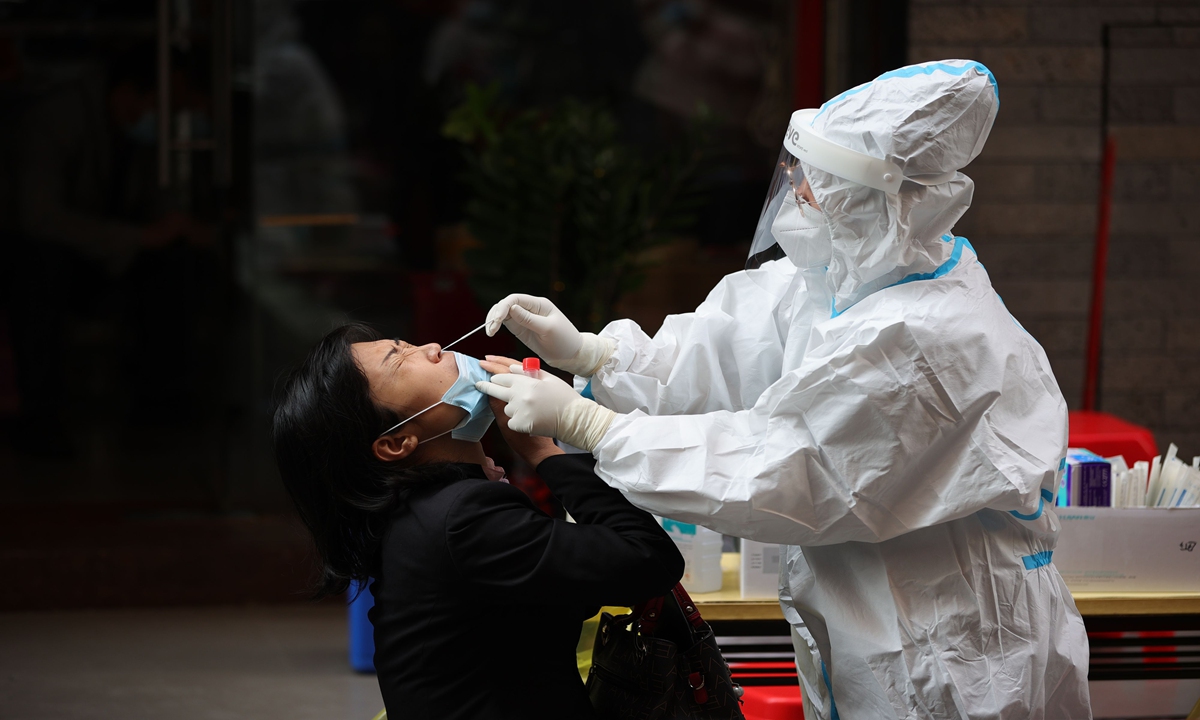Leaks of personal information from epidemiological survey cast shadow over anti-epidemic work

A resident of Shenzhen, South China’s Guangdong Province, takes a nucleic acid test in December, 2020. Photo: VCG
The leak of personal information of people who took part in epidemiological surveys has sparked public concern about the privacy of COVID-19 patients, and cast a shadow over the safety and reliability of the surveys, which could negatively affect China's epidemic prevention and control work.
Chinese observers called on authorities to build and improve an effective system to regulate the epidemiological surveys to avoid leaks and excessive collection of personal data. They suggest authorities should intensify the investigation and punish those who leak information and those engaged in cyber violence against the patients.
The Paper reported that hospital staff, the centers for disease control and prevention, aviation security staff and personnel handling the epidemiological report, could be involved in leaking the personal information they obtained from epidemiological surveys. They then forwarded the information to an individual or an online group chat, which caused rapid spread of the information on the social media. Consequently, some patients whose personal information was exposed suffered cyber violence.
The Paper reported on Tuesday that an intern surnamed Li engaged in an epidemiological survey at the Xinjiang county's Center for Disease Control and Prevention (CDC) in North China's Shanxi Province, sent the epidemiological report to his sister who spread the report on a WeChat group, causing bad influence.
Li's internship contract was cancelled after investigation, his leader was required to make a written inspection and criticized publicly, and the county's CDC director made a self-criticism at a meeting.
Another case was reported by authorities in Hangzhou, East China's Zhejiang Province on January 7. An asymptomatic patient who came to Hangzhou from overseas found his or her personal information on social media. After an investigation, the local police reported that a doctor in a local hospital's infectious disease department sent the silent carrier's epidemiological report to a WeChat group that resulted in the information being spread, which violated personal privacy. The police punished the doctor with administrative detention for five days.
Zhu Wei, a professor from the China University of Political Science and Law, told the Global Times on Thursday that the information about the movements of patients of COVID-19 can be published while their private information such as home address which is not related to the anti-epidemic work should not be exposed.
Zhu noted the online social media platforms including the WeChat also bear responsibilities to review the information sent by its users. If the platforms find users forwarded private information of the coronavirus cases, they should withdraw the information in a timely manner, Zhu said.
Zhu suggested that the collector of the epidemiological information should not be the keeper and analyst of the information.



